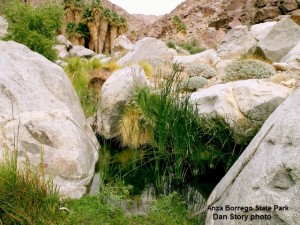The Human Race Is Obligated to Work Toward Nature’s Restoration
When Jesus taught about the kingdom of heaven (or “kingdom of God,” which is the same thing), He referred to it in two ways. First, there will be a future, eschatological kingdom at the end of this age. This is the new heaven and earth discussed in my previous blog article. But Jesus also taught that the kingdom of heaven entered history through His own person and ministry (see Matt. 12:28; Luke 17:20–21). This phase of the kingdom of heaven exists in the present cosmos, and Christians enter into it the moment they become saved (John 3:3). In other words, although the kingdom of heaven will not be fully established until our resurrected bodies enter the new heaven and earth, our redemption nevertheless begins in this world.
It is absolutely crucial that Christians recognize this as they work to develop a biblical theology of nature and to establish environmental ethics. Here’s why.
When we become Christians—saved by Christ and adopted into God’s kingdom—God expects us to put into practice the moral values and behaviors and spiritual principles outlined in the Sermon on the Mountain and elsewhere in Scripture. We should begin this immediately upon our conversion, upon entering the kingdom of heaven. We don’t wait until we go to heaven to live a Christian life. Likewise, since the redemption of nature is bound to our redemption (Rom. 8:18-23), we should put into practice God’s divinely ordained stewardship principles while on this earth. Christians are not to be idle, waiting for the future redemption of nature and doing nothing now to protect it from abuse. Such a posture is not only dishonoring to God who created and cares for nature, but it opposes the essence of our own redemption. We are to live as redeemed people now.
Let me put this another way. Paul reminds us in Romans 6:8 that if we died with Christ (died to our old nature upon receiving salvation) we will also live with Him—right now. Just as Jesus was resurrected from the grave, so too are believers, upon receiving Christ, raised to a new quality of moral and spiritual life—right now (2 Cor. 5:17). Christians call this being “born again” (John 3:3). Upon receiving Jesus as Lord and Savior, we are immediately redeemed and are expected to reflect our new birth. We are empowered by the Holy Spirit to resist sin and obey God. Granted, believers will not experience perfect redemption until the future new heaven and new earth, where sin is completely destroyed, and neither will nature. Nevertheless, because redemption begins the moment we are saved, we are to do our best to start living godly, obedient lives. Likewise, because nature’s redemption is bound to human redemption (Rom. 8:18-23), we are called to exercise stewardship responsibilities now.
Francis Schaeffer, writing during the heyday of the environmental movement (1970s), explained that Christians should be looking for “substantial” healing right now in every area that is affected by the Fall (Pollution and the Death of Man, 66). In terms of our relationship with nature, Schaeffer adds: “The Christian who believes the Bible should be the man [or woman] who—with God’s help and in the power of the Holy Spirit—is treating nature now in the direction of the way nature will be [in the future]” (68-69).
Again, it’s worth repeating that nature’s final and perfect restoration will take place in the future new heaven and earth (Heaven—Rev. 21:1; 22:3). This will occur after Satan and his minions are cast into the lake of fire and evil is vanquished forever (Rev. 20:7–21:1). This will be God’s work, not ours. But in the meantime, just as we Christians work to achieve personal and cultural transformation on earth now, so should we fulfill our stewardship responsibilities as part of the redemption process on earth now.
We Have a Choice
In the area of redemption, the church corporately—and Christians individually—can choose to focus entirely on that portion of the doctrine that concerns only people, or they can focus on both the redemption of people and nature. Those who choose the former will probably fail to accept stewardship responsibilities over nature. This choice amounts to disobedience because it ignores God’s stewardship mandate. Generally, this has been the case throughout church history. As a result, mankind’s exploitive behavior has dominated most Christians’ and non-Christians’ relationship with nature, and nature has suffered the consequences.
On the other hand, if Christians recognize nature’s place in human redemption, and understand that Christ’s atoning work includes the redemption of nature as well as people, they will proactively respond to potential harm to the environment and accept stewardship responsibilities.
I’ve mentioned several times in previous blog articles that God has commissioned the human race to be His stewards or caretakers over nature. We’ll examine the passages that teach this in the next couple blog articles. ©
* The blog articles in this series are adapted from my book Should Christians Be Environmentalists? published by Kregel Publications in 2012. The blog articles do not contain all the chapters, data, quotes, references, or my personal experiences, which the book includes. So for “the rest of the story,” you will need to purchase the book, which is available in both paperback and Kindle. This and the following articles are copyrighted material and may not be reproduced in book or article form. But feel free to send links to these articles to your personal email list, Facebook friends and groups, Twitter followers, or other people who may enjoy them.
